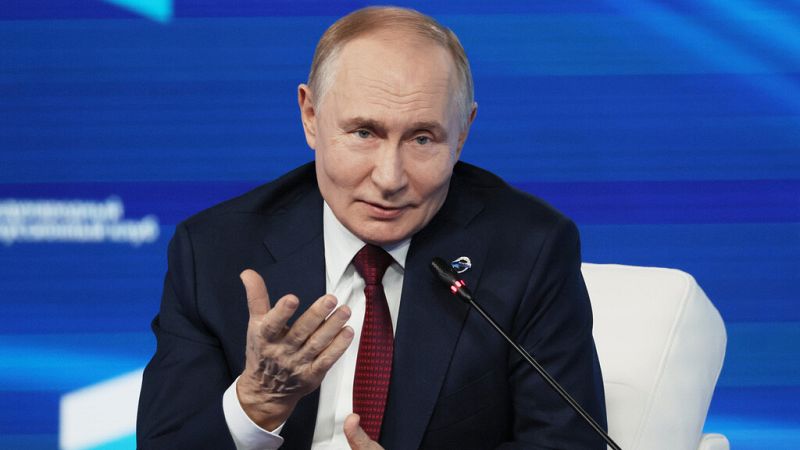Putin praises Trump but warns supplies of Tomahawk missiles to Kyiv could hurt ties

Russian President Vladimir Putin said he felt "comfortable" speaking to his US President Donald Trump, praising his attempt made at the Alaska summit "to search for and find possible ways to settle the Ukrainian crisis,” but warned that the supply of the US Tomahawk long-range cruise missiles to Ukraine would signal a “qualitatively new stage of escalation, including in relations between Russia and the US."
Last week, the United States said it is considering providing Kyiv with the missiles, as the Kremlin continues to refuse to engage in talks with Ukraine brokered by Trump, US Vice President JD Vance confirmed on Sunday.
"What the president is going to do is what's in the best interest for the United States of America," Vance told Fox News. "I know we're having conversations this very minute about the issue".
Putin noted that the long-range missiles would not make a signficant impact on the battlefield, emphasising that the Russian military is continuously making gains against Ukraine.
“It will certainly not change the balance of force on the battlefield,” he said, speaking at a forum of international foreign policy experts in Russia's Black Sea resort of Sochi.
Speaking on condition of anonymity, a White House official said Russia's invasion of Ukraine resulted in a negative impact on both its economy and reputation, as Putin repeatedly rejected proposals for a peace deal that could benefit his country.
At the forum, Putin also dismissed Western accusations of possible Russian involvement following recent drone sightings over Denmark in the past week, claiming it to be a strategy by NATO to “inflame tensions to boost the defense spending.”
While it is not clear who is behind the drone activity, Denmark’s prime minister and NATO’s secretary-general said last week that Russian involvement could not be ruled out.
Speaking at a summit of European leaders in Copenhagen, Ukrainian President Volodymyr Zelenskyy said the drone incidents across Europe "are a clear sign that Russia still feels bold enough to escalate this war."
"It was never just about Ukraine. Russia has always aimed to break the West - and Europe in particular," he added, "Today, their strategy is simple. To divide Europe, to ignite arguments, to prevent us from finding common ground."
Today

